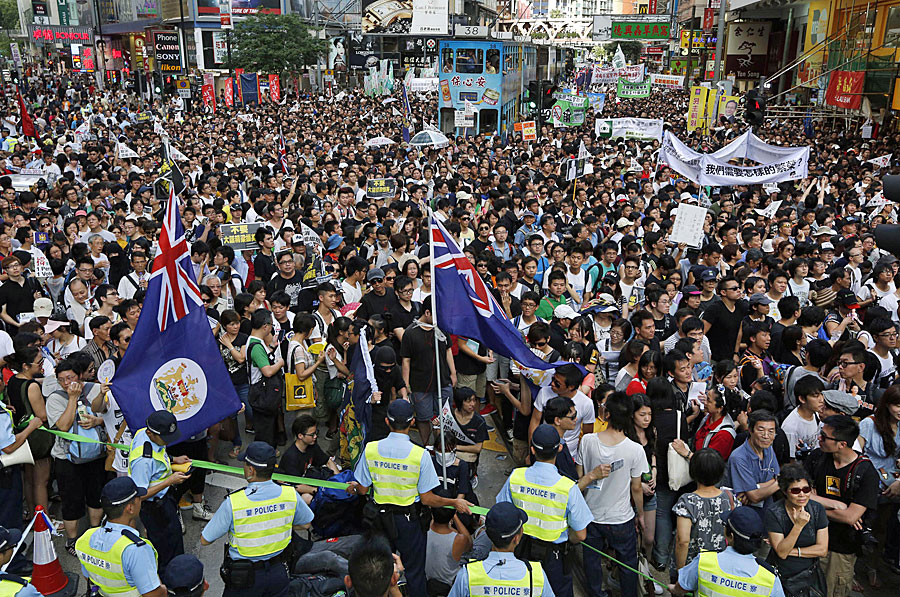It may be time for Hong Kong Protesters to go home

By Bloomberg
Late on Tuesday morning, Hong Kong police began dismantling the barricades at one of the city's pro-democracy protest sites in a methodical, well-planned operation. Demonstrators haven't been forced out completely yet, but it seems only a matter of time. This might just be the moment for them to declare victory and go home.
True, the government has refused to make even symbolic concessions to the protesters, who have been demanding the resignation of the city's current leader, Leung Chun-Ying, and a more open system for electing a new chief executive in 2017. Still, for more than two weeks now, student-led crowds have displayed remarkable discipline and resilience as they've peacefully shut down some of the busiest commercial neighborhoods on the planet. They've clearly won the global publicity battle over Beijing, and have developed extremely useful organizing capacity that can be deployed again in the future.
A losing, barricade-by-barricade resistance against the police -- not to mention growing numbers of impatient fellow citizens -- risks eroding the goodwill they've earned. Taxi drivers frustrated by the roadblocks have been some of the students' most vocal opponents, while a consortium of truck drivers has given the protesters until Wednesday to take down the barricades. Though organized crime and pro-government businessmen may be behind some of these threats, the students would be wise to recognize the reasonable economic concerns of the drivers themselves.
Indeed, dismissing all those who oppose the protests as "pro-Beijing" is about as helpful as claiming protesters are mere pawns of foreign "black hands" like the CIA. The fact is, while most Hong Kongers share a desire for more open elections in 2017, feelings about civil disobedience are more mixed. On Sept. 21, a week before the demonstrations began, a Chinese University of Hong Kong poll showed only 31.3 percent support for "Occupy Central," the organization that proposed the paralyzing protests in the first place. Notably, support was highest among the best-educated respondents.
Going forward, protesters need to develop more realistic long-term goals and a political strategy to achieve them. Without an exit strategy, protesters have been reduced to repeating the same unachievable demands and clinging to their bamboo barricades. Their diminishing numbers are hardly likely to sway officials in Hong Kong or Beijing now. Protest leaders would do better to establish a media strategy to keep the issue of Hong Kong democracy alive, using tactics like the well-publicized referendum that Occupy Central held in June, which attracted more than 500,000 registered voters. Only sustained and broad-based opposition will get the attention of leaders in Beijing.
The end of the protests will certainly strike many as a disappointment, and perhaps even a debacle. But that's to miss how thoroughly the students have altered the debate about Hong Kong's relationship to China. Opposition turns out to be deeper and younger than many -- including China's Communist rulers -- ever imagined. Going home peacefully won't change that message. In fact, by staging a tactical retreat now, protesters will only enhance their standing in advance of the political battles to come.
